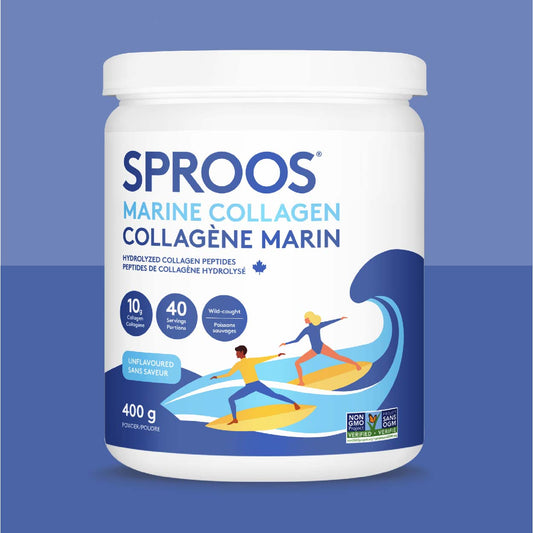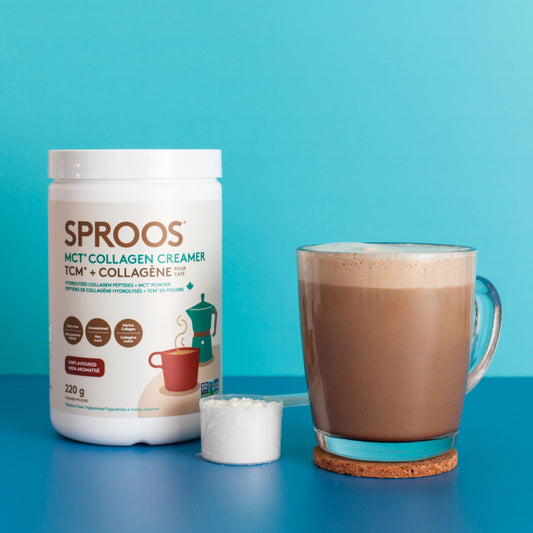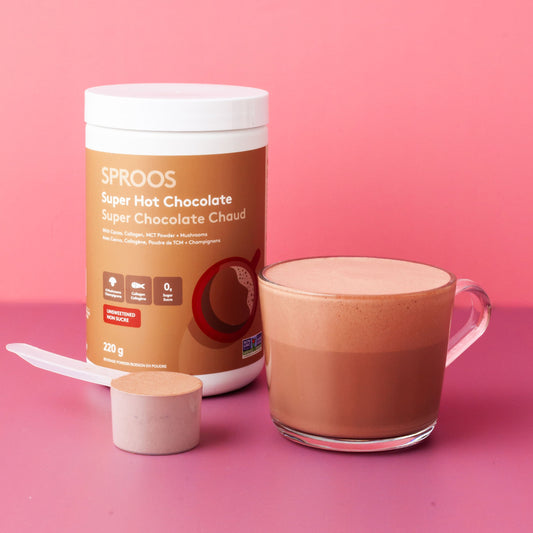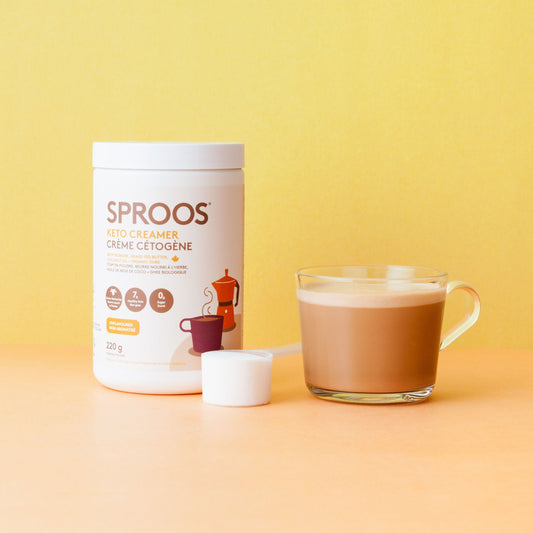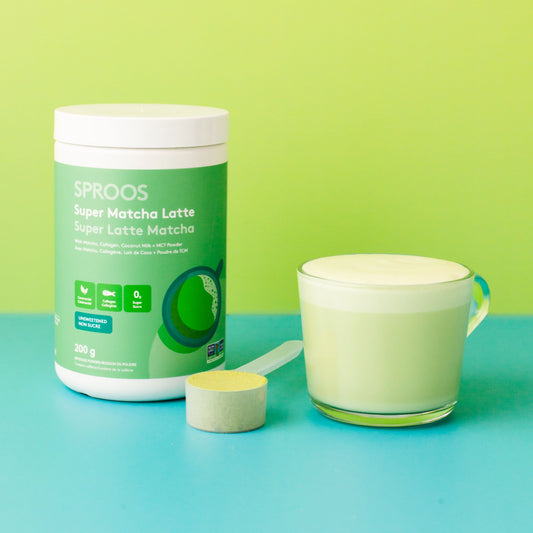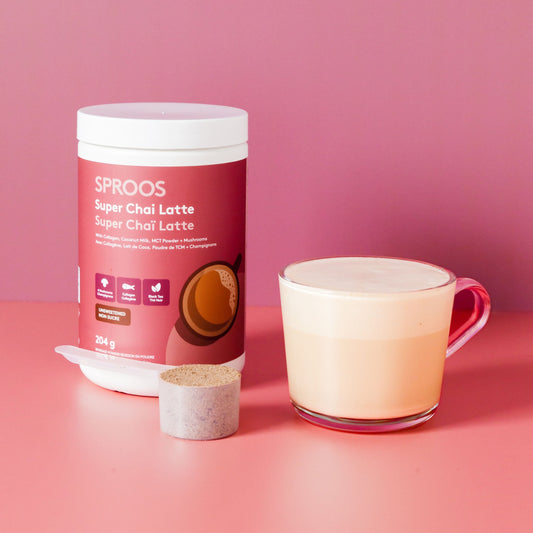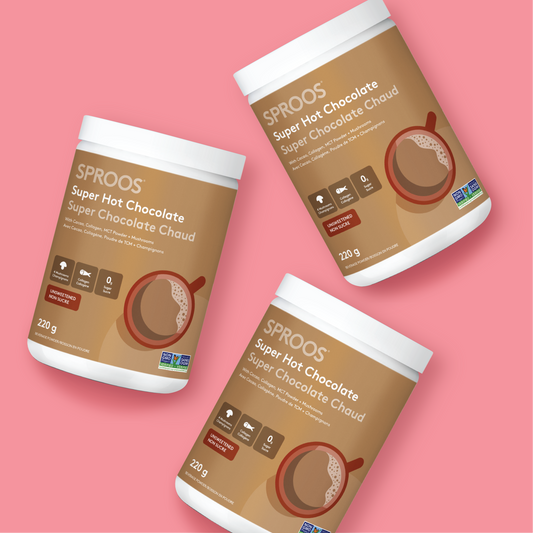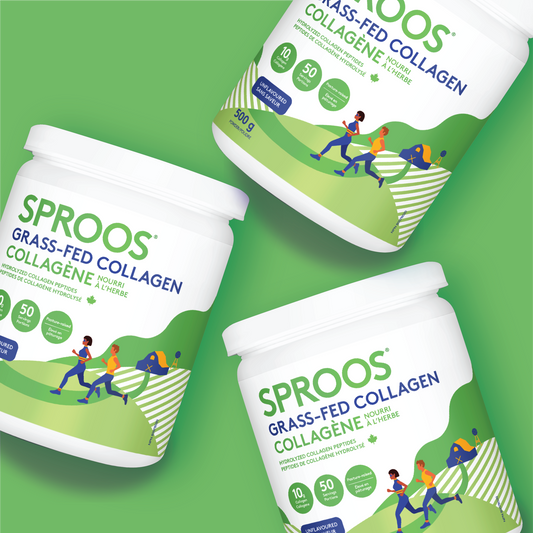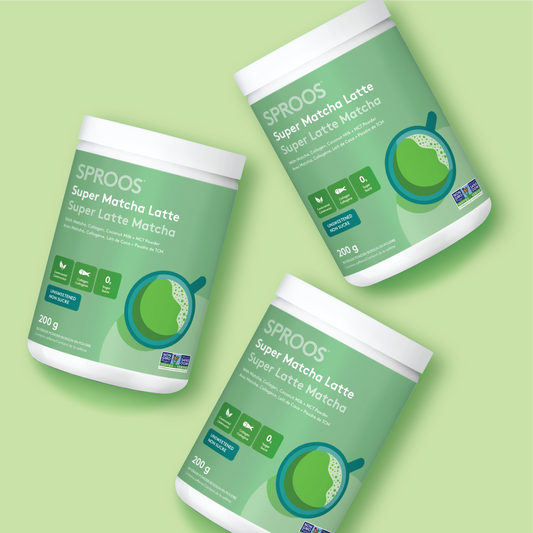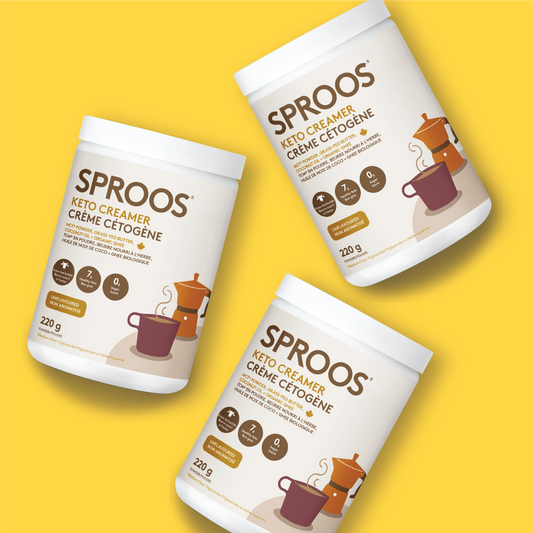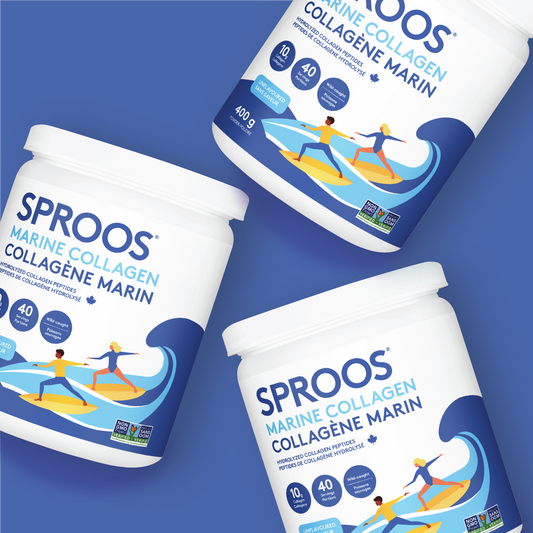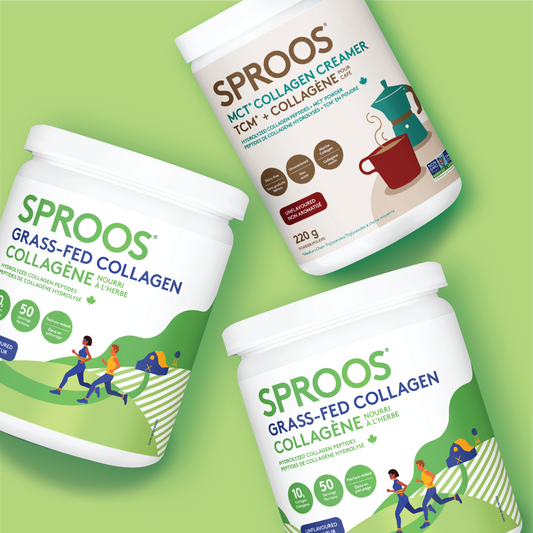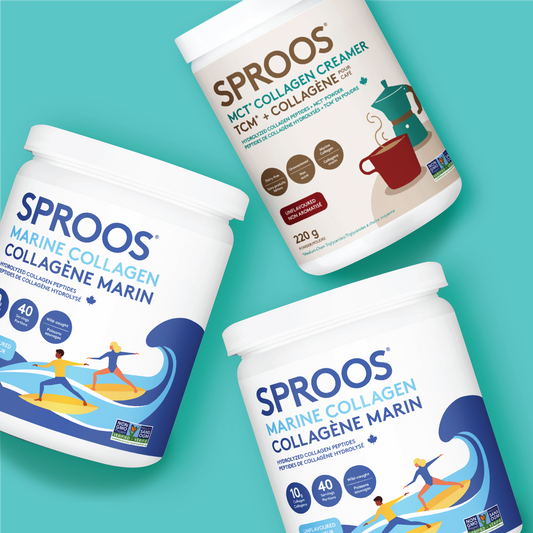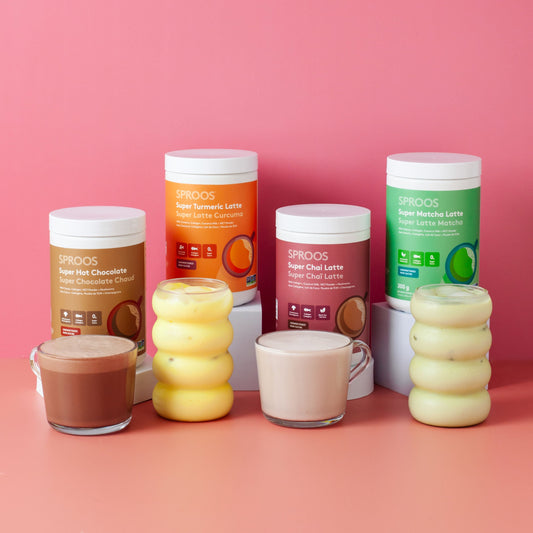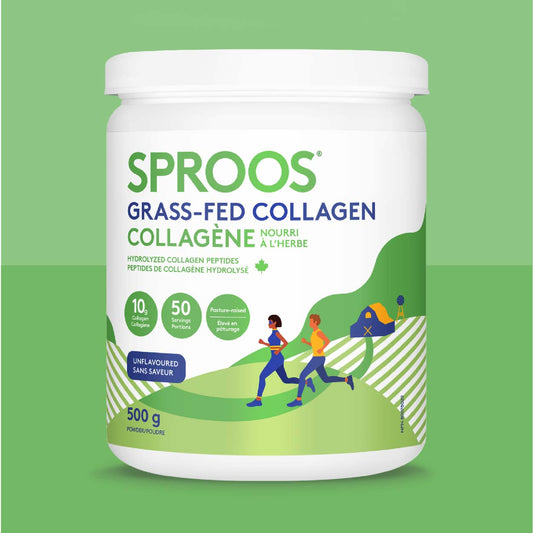Permettez-moi de commencer en disant que je suis totalement pour que les gens intègrent des habitudes saines qui les aideront à se sentir au mieux et à vivre une vie pleine et heureuse. Ce que je ne soutiens pas, c'est lorsque ces habitudes de santé sont poussées à l'extrême et entraînent un échec en raison de leur nature irréaliste, laissant la personne se sentir coupable, honteuse et stagnante.
C'est ce qui arrive souvent lorsque les gens prennent des résolutions du Nouvel An (et c'est pourquoi je suis partisan de cultiver des intentions au lieu de cela). Les résolutions du Nouvel An, par nature, sont très rigides, en noir et blanc et nécessitent une mentalité du tout ou rien. Soit vous le faites, soit vous ne le faites pas. Par exemple, vous vous engagez à vous entraîner 4 fois par semaine. Cela semble génial jusqu'à ce que la vie s'en mêle (anniversaires, maladie, engagements de votre enfant - vous voyez le genre).
Ce que je veux dire, c'est qu'à terme, vous ne pourrez pas maintenir vos entraînements 4 jours par semaine et ce qui arrive souvent, c'est que les gens accordent tellement d'importance à cela et se sentent coupables de ne pas respecter leur plan qu'ils finissent par abandonner. C'est une grande raison pour laquelle 80 % des gens échouent à leurs résolutions du Nouvel An. Heureusement, tout n'est pas sombre et il est tout à fait possible de maintenir une alimentation et un mode de vie sains qui ne soient pas restrictifs et qui soient réellement durables.
1. Intégrer des habitudes saines en se concentrant sur l'AJOUT plutôt que sur la SUPPRESSION
La réponse naturelle à la restriction ou à la privation est de trop manger, de se faire plaisir ou de faire des excès, surtout si vous avez été affecté par l'alimentation émotionnelle ou des troubles alimentaires par le passé. Cela suffit à me faire comprendre que retirer des choses de votre vie dans la quête d'un mode de vie sain n'est pas la solution. Au lieu de cela, j'aime me concentrer sur ce que nous pouvons AJOUTER en termes d'habitudes alimentaires et de mode de vie afin de ne pas se sentir privé et de pouvoir vivre sainement et heureux. Voici quelques idées d'habitudes de santé variées que vous pouvez potentiellement ajouter pour commencer à vous sentir mieux dès aujourd'hui :
- Boire un verre d'eau supplémentaire
- Choisir un nouveau légume au supermarché pour essayer
- Apprécier une tasse de tisane l'après-midi
- Ajouter une portion supplémentaire de légumes verts à votre salade, soupe ou sauté
- Incorporer Collagène dans votre smoothie, soupe, gruau, thé ou café
- Pratiquer des habitudes alimentaires conscientes (mâcher la nourriture jusqu'à obtenir une pâte fine, manger sans distraction, exprimer de la gratitude pour la nourriture devant vous)
Ce ne sont que quelques idées, mais si elles ne vous parlent pas, je vous encourage à trouver des habitudes saines qui vous semblent naturelles et enthousiasmantes. Plus vos habitudes de santé sont excitantes et agréables, plus vous aurez de chances de les maintenir à long terme.
2. Trouvez une forme de mouvement que vous aimez et qui vous fait du bien
Je vais me répéter un peu, mais tout comme il est important d'établir des habitudes de santé agréables, il est tout aussi important de trouver une forme de mouvement qui vous fait vraiment du bien et vous enthousiasme ! C'est l'un des dix principes de alimentation intuitive et une philosophie que je porte et enseigne à mes Approche intuitive de l'alimentation clients as well.
Dès que cela devient une obligation, vous commencerez à trouver des excuses. Cependant, si vous prenez le temps de découvrir quelle forme de mouvement vous fait du bien et vous enthousiasme, vous aurez réellement envie de le faire et vous trouverez du temps dans votre emploi du temps pour cela.
Une partie de ce processus consiste à enlever les qualifications de ce que signifie l'exercice pour vous et si vous avez remarqué, je suis très délibéré dans mon langage en disant « mouvement » plutôt que « exercice ». C'est parce que l'exercice comporte déjà des qualifications comme la durée, la quantité de transpiration, l'intensité ou la vigueur, etc. Tandis que le mouvement n'a aucune attente. Il vous demande simplement de bouger votre corps de la manière qui vous fait du bien, que ce soit un étirement doux le matin ou un semi-marathon.
Une excellente façon de trouver une forme de mouvement qui vous semble agréable et naturelle est d'explorer une variété d'activités et de voir lesquelles vous enthousiasment le plus. Si vous ne savez toujours pas à la fin, demandez-vous lesquelles vous semblent les plus faciles, en gardant à l'esprit que cela semble facile parce que vous y prenez plaisir. Voici quelques exemples de mouvements que vous pouvez explorer :
- Marche
- Course
- Cyclisme
- HIIT
- Musculation
- Roller
- Yoga
- Étirements
- Pilates
- Danse
- Kickboxing
- Escalade
- Sauter
- Rebondir
3. Mangez des aliments que vous appréciez vraiment
Et ainsi, le disque rayé continue ! Je suis sûr qu'à présent, vous comprenez que trouver de la joie et du plaisir dans vos habitudes de santé est important si vous voulez les maintenir à long terme. Cela semble simple, mais quand on grandit dans une génération où l'on vous enseigne que « pas de douleur, pas de gain » et que « rien ne goûte aussi bon que la minceur fait du bien » (ce qui pousse naturellement les gens à adopter une mentalité restrictive), il peut être un peu difficile de comprendre que nous sommes en fait autorisés à trouver de la joie dans nos habitudes de santé.
Mais il est incroyablement important que vous attendiez avec impatience vos habitudes de santé, car encore une fois, plus vous les appréciez, plus vous les pratiquerez. Je veux dire, avez-vous déjà vu quelqu'un manger une salade, puis dire « et après ? » en 0,2 seconde après l'avoir finie ? C'est probablement parce qu'il ne voulait pas la salade au départ et n'en a pas tiré beaucoup de plaisir.
Ne vous méprenez pas, j'adore mes salades et pensent qu'elles peuvent être super excitantes (lorsqu'elles sont bien préparées - pas de laitue iceberg ni de vinaigrette insipide en bouteille ici !), mais c'est moi. Mais ce qui plaît votre palette ? On dit que manger des aliments que vous appréciez vraiment contribue à votre satisfaction globale, même dans le cas des « aliments plaisir » comme les chips.
En vous donnant la permission inconditionnelle de les manger et de les apprécier, il a été constaté que, dans de nombreux cas, les gens se sentent plus satisfaits, moins préoccupés par cela (c'est-à-dire qu'ils ne pensent pas à cela avec honte pendant des heures après les avoir mangés) et mangent parfois même moins sans exercer aucun contrôle sur la situation.
Pour commencer, c'est assez simple - demandez-vous simplement quels aliments vous appréciez vraiment et qui vous font du bien ? Mangez davantage de ces aliments (en pleine conscience, bien sûr, pour en tirer le maximum) et observez à quel point vous vous sentez plus rassasié et satisfait après les avoir consommés.
4. Arrêtez de chercher la perfection
Celui-ci peut sembler un peu contre-intuitif, car on pense souvent que plus on essaie ou travaille dur sur quelque chose, plus cela nous rapproche de nos objectifs, mais ce n'est pas toujours le cas. En fait, c'est rarement le cas, surtout en ce qui concerne la nourriture et le mouvement.
Pour revenir à un de mes points précédents, adopter cette mentalité perfectionniste, du « tout ou rien » et en noir et blanc dans nos comportements autour de la nourriture et du mouvement est en fait très paralysant. Cela ne laisse pas beaucoup de place à la flexibilité. Encore une fois, soit vous le faites, soit vous ne le faites pas, et quand vous ne le faites pas, souvent les gens ressentent une immense culpabilité et honte, ce qui les maintient finalement coincés dans le cycle des régimes.
Au lieu de cela, lâchez la perfection en abandonnant la mentalité du tout ou rien. Une façon de faire cela est de changer votre langage. Penser simplement à vos habitudes de santé avec une mentalité de « la plupart du temps » crée déjà de la flexibilité et de la place pour que vous puissiez maintenir vos comportements sains sans attendre la perfection.
Être doux et compatissant envers soi-même est également important. Lorsque nous pouvons nous accueillir avec compassion, nous sommes moins durs envers nous-mêmes. C'est important car on ne peut pas construire des habitudes positives et saines à partir d'un lieu de haine de soi.
Donc, si vous vivez en dehors de vos habitudes saines, ou si vous vous adonnez parfois à l'alimentation émotionnelle, invitez cette compassion et ce respect envers vous-même. Vous rabaisser et vous dire que vous ferez plus d'efforts le lendemain (et le lendemain, et le lendemain...) ne fera que vous maintenir là où vous êtes. Au lieu de cela, abordez la situation avec amour et respect, rappelez-vous que vous êtes humain, et si vous vous êtes adonné à l'alimentation émotionnelle ou à la suralimentation d'une certaine manière, saisissez l'occasion pour vous interroger sur ce qui a pu la déclencher. Peut-être y a-t-il un besoin dans votre vie qui n'est pas satisfait et qui nécessite une attention.
Bien que ces stratégies puissent sembler simples, évidentes et oserais-je dire « légères », elles sont efficaces et constituent véritablement la solution pour établir et maintenir une routine saine à long terme sans restriction.
Si vous en essayez quelques-uns, j'adorerais savoir comment cela s'est passé pour vous ! Partagez dans les commentaires ci-dessous ou partagez et identifiez-moi sur Instagram @rachelmmolenda.
Rachel Molenda
Nutritionniste en alimentation intuitive
Rachel Molenda (@rachelmmolenda) est basée à Toronto Intuitive Eating Nutritionniste et animatrice de Fill Your Cup Podcast, en mission pour aider les femmes à moins s'obséder et à faire la paix avec la nourriture et leur corps. Rachel apporte son approche non restrictive, basée sur des aliments complets, au travail de guérison qu'elle fait avec des femmes épuisées fatiguées des régimes chroniques, afin de les aider à établir une relation saine avec la nourriture et leur corps.



